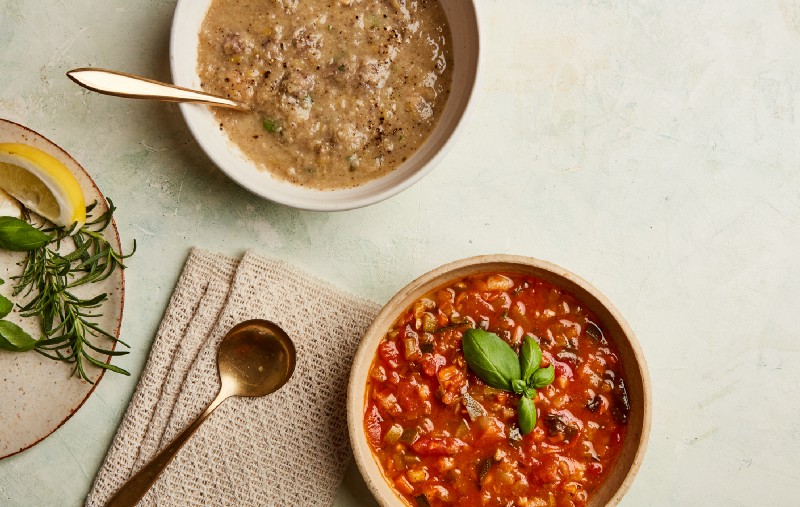
There’s a lot of conflicting advice about the best diet to follow. High-fat, low-carb, high-protein? Registered dietitian, Justine Roth, gets back to basics.
Splendid Spoon: Hi Justine! There’s so much talk about low-carb, high-protein etc. How should we sift through the noise?
Justine Roth: The issue with this conflicting information stems from the misconception that there’s only one way to achieve a healthy, balanced diet. Overall, placing a major diet restriction on yourself won’t work in the long term — it will feel like a burden.
If we want to change our diet, we want to do it right (we all have a little — or a lot — of type A in us), so we search for rules, guidelines, and someone to tell us what to do. That’s where conflicting diet advice comes in — everyone has something they think will work. But the issue is that what might work for one, may not work for another. Educating yourself on the options, deciding what works best for you, and adapting to the changes in a practical and consistent way will always yield the best results.
SS: What should a balanced meal look like?
JR: All meals should have some sort of carbohydrate source, plus a protein or fat. This helps to sustain blood sugars and keep you satiated. You need to have things that will keep you full so that you’re not always searching for something to eat!
For lunch and dinner I recommend thinking of your plate (or bowl) as cut into thirds: one-third protein, one-third vegetable, one-third grain, plus some added fat for satiety e.g. a soup with vegetables, beans, and grains. I sometimes add a grain and a few slices of avocado to the lighter Splendid bowls so they’re more filling.
SS: If we want to lose weight, are there certain macronutrients we should limit?
JR: I think the best way to lose weight is to eat foods that sustain your fullness and don’t leave you feeling deprived. Vegetables and fruits are great, but they need to be paired with protein and fat sources so your body will work properly and burn the calories it needs to survive. Macronutrients are our bodies’ main energy sources. I don’t believe any of them should be restricted in a major way. If you have a goal of losing weight, then limit the foods that don’t contain a lot of nutrients and won’t keep you satiated.
SS: On the other end of the scale, if we need more to sustain ourselves (i.e. if we’re pregnant or exercising a lot), should we eat more of certain macronutrients?
JR: Our bodies main energy source is carbohydrates. Carbohydrates come in many different forms, but ultimately glucose is what your body wants. Your body will work very hard to burn fat and protein into glucose when you’re growing another person inside you, or burning an excess of calories through exercise, so it’s important to give your body what it wants (i.e. more carbohydrates!) and not make it work overtime to get it.
SS: What one thing do you wish everyone knew about building a healthy, balanced meal?
JR: I wish everyone understood that there’s not one perfect way to build a healthy meal. Sometimes a meal might look like a few different items thrown together. Just because it’s not Instagram-worthy doesn’t mean your body won’t be satiated and full. Always make sure to include a variety of nutrient-dense foods in your meals to achieve overall health and balance throughout the day.
